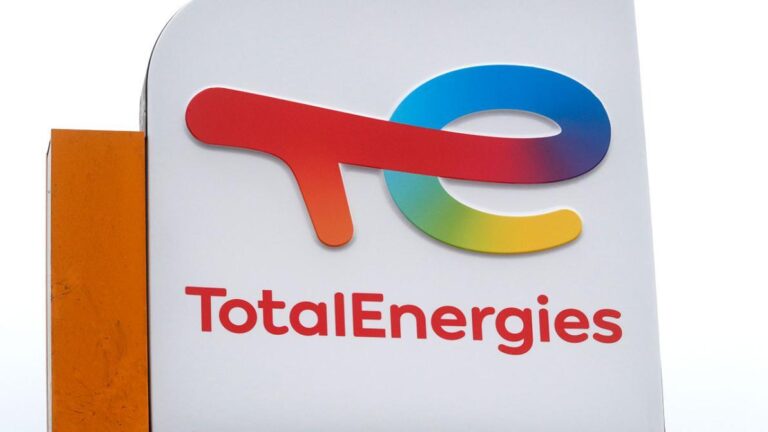TotalEnergies has agreed to sell its 45% stake in several Argentine oil blocks to the country’s state-run energy company, YPF, for $500 million. The transaction marks a significant shift in the ownership structure of key hydrocarbon assets in Argentina, underscoring YPF’s strategy to consolidate its position in the local energy sector. This deal, announced on TradingView, reflects ongoing changes in the regional oil market amid fluctuating global energy dynamics.
TotalEnergies Divests Significant Stake in Argentinian Oil Blocks to YPF for Strategic Realignment
TotalEnergies has finalized the sale of its 45% stake in key Argentinian oil blocks to the national energy company YPF for a transaction value of $500 million. This divestment marks a strategic pivot for TotalEnergies as it aims to streamline its asset portfolio and concentrate on core regions with higher growth potential. By transferring this significant stake, TotalEnergies reinforces its commitment to optimizing capital allocation amid evolving global energy markets and transitioning towards more sustainable ventures.
The acquisition empowers YPF to bolster its operational control and expand its exploration footprint within Argentina’s hydrocarbon-rich provinces. Industry analysts anticipate enhanced synergies and accelerated project developments as YPF integrates TotalEnergies’ assets. The deal details are summarized below:
| Parameter | Details |
|---|---|
| Stake Sold | 45% |
| Buyer | YPF |
| Seller | TotalEnergies |
| Transaction Value | $500 Million |
| Region | Argentina (Oil Blocks) |
| Strategic Aim | Portfolio Rationalization & Focus on Core Markets |
- Enhancement of YPF’s control over oil production assets
- TotalEnergies’ focus shift to renewable and high-margin assets
- Potential for increased local energy self-sufficiency in Argentina
Implications of the Transaction on Argentina’s Energy Sector and Market Dynamics
The recent transaction between TotalEnergies and YPF marks a significant shift in Argentina’s energy landscape, signaling increased national control over key hydrocarbon assets. By acquiring a 45% stake in strategically important oil blocks, YPF bolsters its portfolio, enhancing its capacity to influence production volumes and local supply stability. This move not only aligns with Argentina’s broader push for energy sovereignty but also positions YPF as a dominant player capable of leveraging these assets to meet growing domestic demand and reduce dependency on imports.
Market analysts emphasize several key ramifications:
- Increased Investment in Infrastructure: YPF is expected to inject more capital into exploration, drilling, and technological modernization.
- Price Stabilization Potential: Enhanced control over production may help moderate price volatility in the domestic oil market.
- Competitive Dynamics: The deal could lead to renewed competition with private and international firms, shaping the future of partnerships and joint ventures.
| Aspect | Pre-Transaction | Post-Transaction |
|---|---|---|
| YPF Stake in Oil Blocks | 55% | 100% |
| Influence on Production | Moderate | Significant |
| Foreign Partner Presence | High (TotalEnergies) | Reduced |
| Local Market Price | Volatile | Potential Stabilization |
Critical Recommendations for Investors Navigating the Changing Landscape in Latin American Oil Assets
Investors capitalizing on oil asset shifts in Latin America must prioritize understanding the evolving geopolitical and economic context. TotalEnergies’ divestment of a significant 45% stake in Argentina’s oil blocks to YPF highlights the growing trend of national companies reclaiming control amid fluctuating global energy demands. For international stakeholders, aligning investments with regional energy policies and anticipating regulatory adjustments in countries like Argentina become crucial strategies. This dynamic necessitates a thorough risk assessment framework, focusing on currency volatility, political stability, and contractual transparency to safeguard capital and optimize returns.
Strategic diversification within the region can mitigate exposure to specific country risks while tapping into emerging oil provinces with high production potential. Investors should also leverage technological partnerships, as seen in collaborations between international operators and local firms, to enhance operational efficiency and reduce environmental impact. The following table summarizes key factors to monitor when navigating Latin American oil investments:
| Factor | Consideration | Impact Level |
|---|---|---|
| Policy Changes | Energy reforms & nationalization trends | High |
| Currency Fluctuation | Exchange rates vs. USD | Medium |
| Production Costs | Local labor & infrastructure expenses | High |
| Environmental Regulations | Compliance & sustainability standards | Medium |
| Partnership Models | Local vs. international collaboration | Low to Medium |
- Stay informed on bilateral trade agreements influencing energy export/import flows.
- Monitor social license factors, including community engagement and indigenous rights.
- Engage local expertise to navigate regulatory landscapes and optimize project timelines.
In Conclusion
The sale of a 45% stake in TotalEnergies’ Argentine oil blocks to YPF for $500 million marks a significant development in the region’s energy sector, reinforcing YPF’s position as a key national player while allowing TotalEnergies to streamline its portfolio. As both companies navigate the evolving landscape of global energy demand and investment priorities, this transaction highlights the ongoing shifts within Argentina’s oil industry and the broader strategic realignments among international and local energy firms. Further market watchers will be keen to observe how this deal influences production dynamics and future collaboration in the country.




